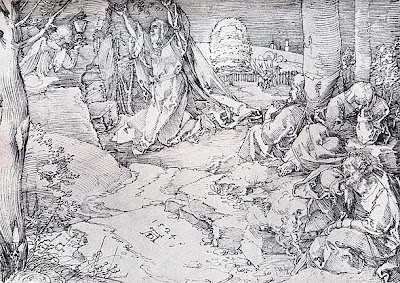 I have been asked more than once (sometimes in jest, and sometimes in earnest) in what way Unitarianism is a "real" church. Its not a new question and Cyrus Bartol addresses it in this sermon from his collection of 1853, "Discourses on the Christian Body and Form"
I have been asked more than once (sometimes in jest, and sometimes in earnest) in what way Unitarianism is a "real" church. Its not a new question and Cyrus Bartol addresses it in this sermon from his collection of 1853, "Discourses on the Christian Body and Form""THE CHURCH OF CHRIST
Matt. xvi. 18. — Upon This Rock I Will Build My Church, And the gates of hell shall not prevail against it.
Here is proof from Christ's own lips, that he came not only to reveal truth from heaven, but also to establish a church on earth; or that his object was not only to enlighten individual minds, but to unite his followers in affectionate fellowship together...
It is often said, that religion addresses the soul in its pure individuality; that it is something between every man alone and his Maker; that hosts of numbers are as nothing, and no company is counted in the relations between the solitary heart and conscience and their sole original Fashioner and Inspirer. It is true that Christ speaks to us as individuals. More than any other teacher, he makes every one of us know that we are created by God, immediately connected with him, personally responsible to him, and open to the secret warning and solicitation of his spirit; that we can hide from him in no crowd, and be shielded from him by no interposition. But, with equal explicitness and no inconsistency, he teaches that those who listen to his voice and receive his lessons, becoming like-minded in conscience and love, will be a band of believers and associated laborers to his honor, for their own and all men's salvation.
Are we of the church of Christ? To help you to consider or solve this question, I have to offer no logical definitions, no curious tests, no rigid articles of any private or sectarian creed of church-membership. Be the principles of the decision as large and liberal as our reason, in all its length and breadth, can lay down, or as our freedom, in all the honest extent of its motion, may demand. The soul which, won by the beauty and loveliness of Christ's character, stirred by his purity, and inflamed with the holy fire of his self-sacrifice, flows into cordial agreement with all other trustful souls about it, so likewise attracted and kindled; the soul that is willing with them to celebrate and carry out its reverence and love for the common Lord in every evangelical and Christian way, according to its fair understanding of his design, is a member of Christ's real church.
In this broad allowance of liberty, there is no license, but a holy severity greater than in any dogmatic interpretation or ecclesiastic imposition. It gives inevitable point to the inquiry, " Do we so flow and so proceed together ? " Are we a church, or but a congregation?...Ah, my friends! we can go to heaven in no such solitary, unsympathizing way, apart from our kind. Heaven is not a country whose direction the single traveller can find, or a shore the lonely navigator can reach. The strongest are too feeble, and the wisest lack sagacity, for an unaided achievement like that. The very road to heaven lies through one another's hearts. There is no path beside. The very outset and course we must take is that mutual communion which is hardly less essential either to virtue or joy than our communion with God...
The central principle of Christianity is not strictly a moral, but a spiritual, principle of love; and there is, in the teaching and institution of Christ embodying this principle, a dignity which has in its favor the verdict of all good sense and philosophy, of all knowledge of man or God. The love of God, which is the first spark of all religion and excellence, kindles the love of man, and touches philanthropy with its own holiness. Then out of this human love, thus quickened and sanctified, issues, in its best and finest quality, all morality, all lowliness, generosity, charity, justice, and truth. The church of Christ is the hearthstone on which these fires of divine and human affection are lighted. The services and ordinances of the gospel are the fuel with which these fires are fed. God's children and Christ's disciples, well called a flock, gather around the sacred flame for warmth and illumination, and bear away their burning lamps and ardent hearts into all the coldness and darkness of the world, to fill it with saving beams of lustre and heat."
Blessings




















 The heart of prayer is "Thy will, not mine, be done." I have only scratched the surface of what this means in my own prayer life, but deeply believe it to be true.
The heart of prayer is "Thy will, not mine, be done." I have only scratched the surface of what this means in my own prayer life, but deeply believe it to be true.
